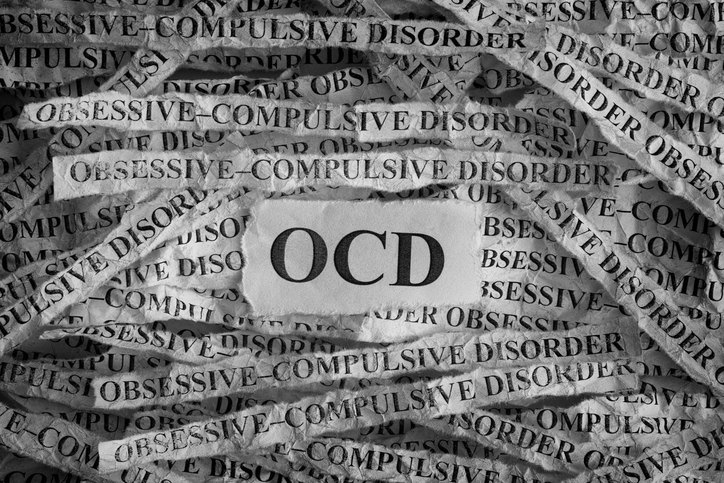Understanding Obsessive-compulsive Disorder (OCD)
I often hear people say, “I have OCD” or “I’m very OCD,” in attempt to describe their habits or desire for cleanliness and order. Many use the term casually and lightly, without fully understanding the implications and/or meaning of such a phrase.
I can’t tell you how many times I scroll through the internet and see things like: “I’m #SoOCD.”
Well, I would love for it to stop.
The term obsessive-compulsive disorder (OCD) is overused. In fact, it’s not even used correctly.
The disorder which involves symptoms of perfectionism, is in fact, Obsessive-compulsive personality disorder (OCPD) and not OCD.
People generally have the best intentions- sometimes they are trying to be funny or find a way to describe a behavior; however, using OCD in a careless way is insensitive to those who truly suffer from this condition.
I have decided to write this blog for a number of reasons:
1) I want to educate the public on what OCD really looks like; 2) I am hoping to help people understand the difference between OCD and OCPD; 3) I would like to stress that some of the ways in which we use these terms can be damaging to those who have been diagnosed with one or both disorder(s) (e.g. we don’t need to put them into hashtag form).
The Difference between OCD and OCPD
Without using too much clinical jargon, OCPD is a personality disorder characterized by a pattern of interest with perfectionism, mental control, efficiency, orderliness, or excessive attention to detail.
OCD is an anxiety disorder in which individuals experience recurrent, persistent, and undesirable feelings, intrusive thoughts, sensations, and images (obsessions). Many who suffer from OCD engage in unwanted behavioral rituals (compulsions) or mental acts in attempt to reduce anxiety.
Despite the similarity in their names, OCD and OCPD, are two separate disorders.
Diving deeper into OCD and Understanding Compulsions
According to the DSM-5 (Diagnostic and Statistical Manual of Mental Disorders, Fifth Edition), compulsions are defined as: “repetitive behaviors (e.g., hand washing, ordering, checking) or mental acts (e.g., praying, counting, repeating words silently) that the individual feels driven to perform in response to an obsession or according to rules that must be applied rigidly,” (2013).
Engaging in compulsions can be overwhelming and time-consuming. Although these rituals can be exhausting in nature, they serve a purpose. The compulsive behaviors are often an individual’s way of coping with distress. Engaging in compulsions can help an individual temporarily regulate and self-soothe.
The downside of these rituals is that they are not connected in a realistic way with what they are designed to prevent or neutralize; and they are often excessive and sometimes debilitating.
Symptoms of OCD can be anywhere from mild to severe. If the condition is left untreated, it can impair and limit a person’s ability to function.
A Word (or two) to the wise…
While I am trying to discourage using the term OCD casually, I want to be clear that I am not suggesting that OCPD should be used in it’s place.
Both disorders cause significant distress.
When we use these terms to describe quirks and personality traits, we are actually downplaying and minimizing the experience of those who truly suffer from these disorders.
How can we create change?
- Let’s start by being mindful about how we describe perfectionism and the desire for efficiency.
- Let’s stop using OCD or OCPD lightly. We don’t want to minimize or make light of someone’s illness.
- Refrain from using the term OCD to describe yourself when you haven’t actually been diagnosed with this disorder.
- Let’s educate our peers on the impact of using these terms.
- Let’s find alternate ways to describe the need for control and order.
Together, we can shift the way that we talk about mental illness.
If you or someone you love suffer from OCD or OCPD, please reach out today. Couples counseling in San Diego, individual therapy, and family counseling can help you to cope with these illnesses.
Click on the link below and request a discovery call with me today and let’s do this together- one step at a time.
References:
American Psychiatric Association. (2013). Diagnostic and statistical manual of mental disorders (5th ed.). Arlington, VA: American Psychiatric Publishing.


